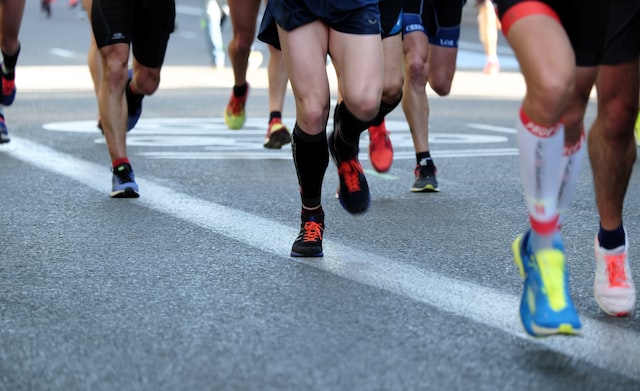Hwasun’s Nineteenth Annual Marathon
By William Urbanski
On the first weekend of November, the county of Hwasun was host to the 19th Annual Dolmen Marathon (제19회 화순 고인돌 마라톤 대회). In addition to being surprisingly well attended, it was one of the most well-organized, exciting, and high-energy race events that I’ve attended in about a decade.
“Marathon” Basics in Korea
First of all, the term “marathon” in Korea is used pretty liberally to describe the entirety of 5K, 10K, half marathon (21.1K) and full marathon races (42.2K). So, even if a race event says it’s a “marathon,” it’s safe to assume there are other races, too. Signing up for these races is pretty simple and almost always done through the website with payment being done through bank transfer. When signing up for any race, there are two options: general (일반) and “mania” (매니아). Regular participants generally receive a race T-shirt or other special item a few days before the race. “Mania” is cheaper, and these participants don’t receive the commemorative T-shirt or other item but still get to run the race and have full access to everything that happens on race day. Mania participants, of course, also get all the race bibs, timing chips, and necessary information they’ll need for the big day. Either option is good, but if you end up doing a bunch of races, you’ll quickly accumulate a big stash of race T-shirts.
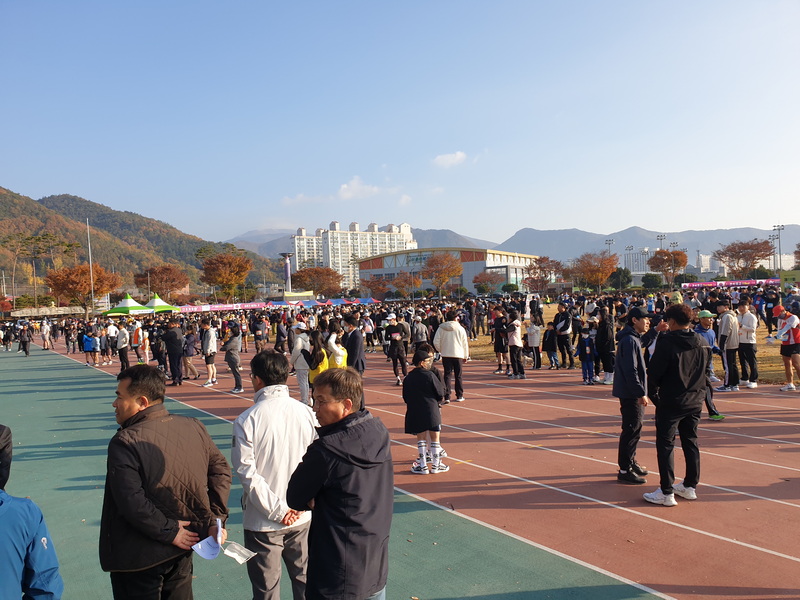
There are some other things to expect at the event before the race actually gets started. First, there will be an extremely well-organized and efficient storage facility (보관소) where you can safely leave your gear while running. Next, these events tend to have a festive atmosphere with plenty of music and a big, group warm-up session. Last, you can pretty much expect the parking situation to be a nightmare, so either get there early or be prepared to park on the street kind of far from the start line.
If you were a bit of a pro-star runner back home and expect to win any of the races in Korea, let me warn you that there are always a couple of ringers at these races, and these guys can really move. In Hwasun for example, the 10K winners came in at around thirty-two minutes, which is ridiculously, blisteringly fast. For context, the world records for 10K road races are about twenty-seven minutes for men and about thirty minutes for women.
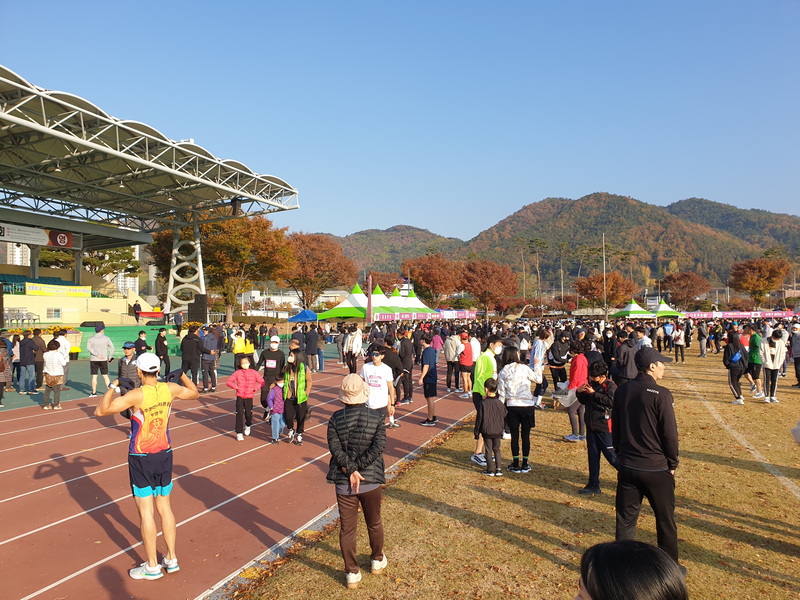
The Hwasun Course
In Hwasun, all the races that took place started in the public stadium (화순공설운동장); then runners made their way out onto the country roads, which were all expertly blocked off and very easy to follow. There’s always a bit of mayhem and crowding at the starting line, and my advice would be to hang back for a minute or two and let people spread out a bit before you start your race. The timing chip that all runners attach to their shoes will indicate your true time anyway.
The various courses in Hwasun went out into the country a little bit, and runners had to turn around at their respective halfway points (which were pretty hard to miss). At any race, the course is always a bit of an x-factor, and the one at the Hwasun Marathon was no exception. After the first few hundred meters, the course basically went uphill for a solid two kilometers, which was a bit of an unexpected challenge, but most people seemed to manage it alright.
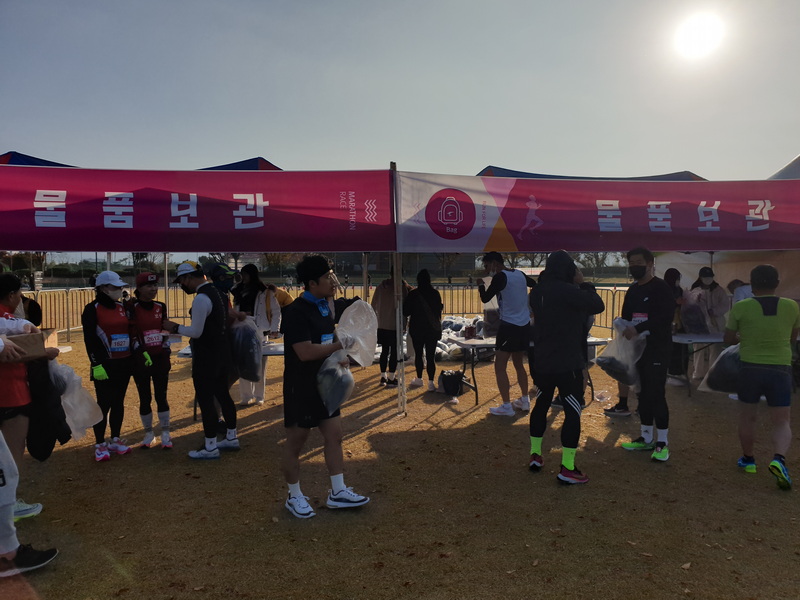
It’s worth mentioning here that the race was at risk for being cancelled outright due to it taking place only one day after the end of the national mourning period for the tragic events that took place on Halloween in Itaewon. While it obviously ended up going ahead, the organizers did make the curious decision to change the half marathon race to an eleven-kilometer one. From what I could gather, this was done to “tone down” the event a bit or perhaps even avoid overcrowding. Whatever the reason, it was nice that the event still took place, especially considering all the work that went into it.
After the Race
The weather at the start of November was a beautiful time to run – not to hot and not too cold. But all good things must come to an end, and it’s always a satisfying feeling to see the finish line approaching. At the finish line, there was a professional photographer waiting to take an action shot which made for a nice memento.
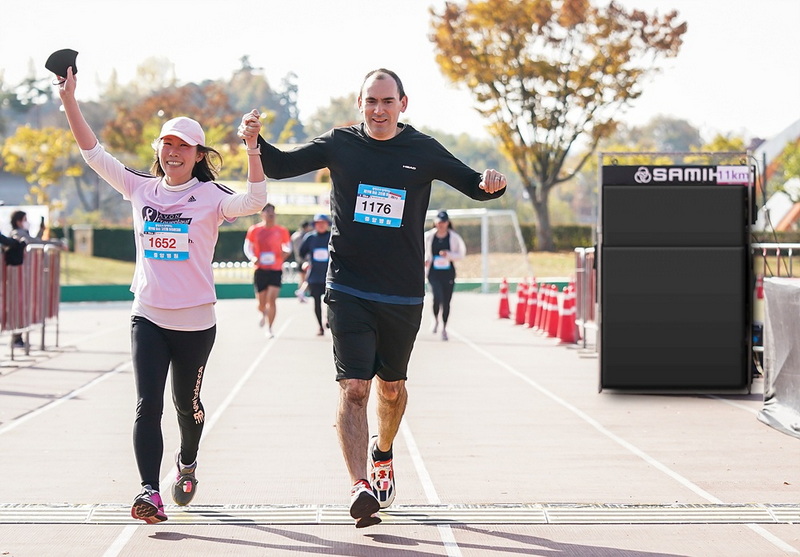
As mentioned above, the Hwasun Marathon’s organization was brilliant, and the finish area was where the organization really shone. After crossing the finish, there were plenty of volunteers handing out gift bags and drinks. Close by, there was a photo zone as well as a booth set up where you could get your official finishing time printed up onto a certificate – a nice touch! There was even a place where, for a few extra bucks, you could get your finishing time engraved onto your medal if you so desired (although I’ll have to wait until my time improves to take advantage of that service).
On a final note, even though I was permanently traumatized by a horrid and foul bowl of ddeokguk (떡국) in the year 2014, I actually found myself enjoying a couple bowls of the stuff that was prepared with care by another set of volunteers near the parking lot.
Conclusions
Participating in race events in Korea is a great way to get some exercise, achieve your fitness goals, have a great time, meet some people, and see new parts of the country. In general, races in Korea are much more fun and convivial than races I’ve seen in other parts of the world. They also tend to run smoothly, and in this respect, the Hwasun Marathon was exceptional – you could really feel that the race organizers and team of volunteers truly cared about putting on a great event.
See you next year!
Featured image by Miguel A Amutio on Unsplash
The Author
William Urbanski is rediscovering his passion for running. His 10K time will remain a closely guarded secret until further notice. Instagram: @will_il_gatto





